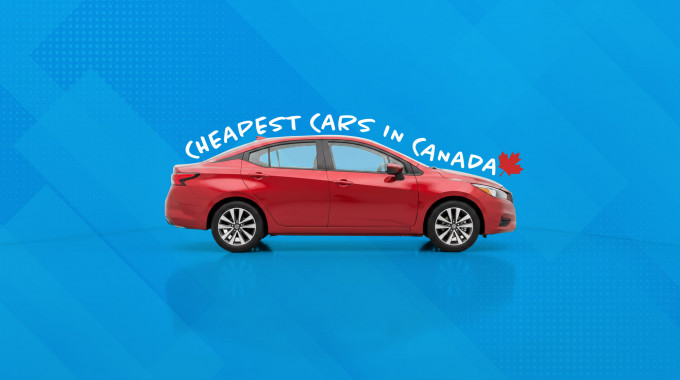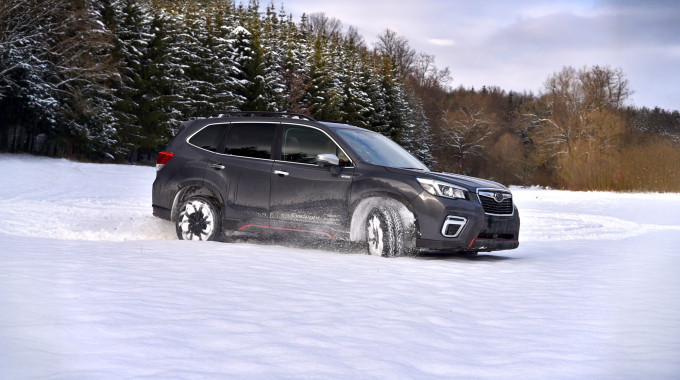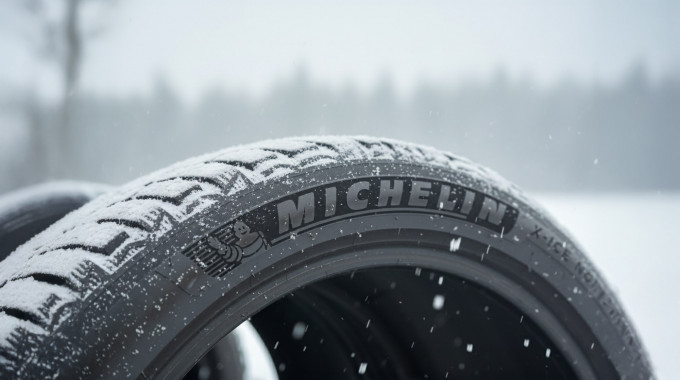
How to Buy a Used Car in Ontario: A Complete Guide
If you’re planning to buy a used car in Ontario, it’s important to do your homework and get the best car for the most value. This requires research, budgeting, possibly financing, inspections, documentation, and other considerations that will factor into your buying journey. That said, it doesn’t have to be an intimidating and stressful experience. You just need to have your ducks in a row and know what steps to take. We’ve got everything Ontarians need to know in order to find the right car at the right price.
How to find the right used car
Before you start perusing used car listings online or visiting dealerships, you’ll want to drill down on what kind of vehicle is best for you. There is plenty to factor in – size, capacity, fuel consumption, dollar value, and more. Here are some of your major considerations:
Size and capacity
Are you a single person or do you have a family of four to haul around? Are you a weekend warrior carrying camping gear or an urbanite staying within the city limits? Passenger capacity and cargo space should be a defining factor in your used car purchase decision.
Fuel consumption
As one of the major costs of owning a car, fuel consumption is becoming a crucial consideration for used car buyers. Smaller vehicles are going to outperform on fuel economy compared to bigger vehicles, such as all-wheel and four-wheel drive trucks and SUVs. Used electric or hybrid vehicles are harder to find but that marketplace is growing fast.
Safety & reliability
Auto manufacturers are increasingly focusing their attention on safety with driver-assist features. Look to newer models for the latest technologies. Also, check if the car has high safety ratings from North American organizations such as:
- National Highway Traffic Safety Administration (NHTSA)
- Insurance Institute for Highway Safety (IIHS)
You can also check how often a certain model has been recalled thanks to Transport Canada.
Performance
It’s probably no surprise to know that some vehicles are more powerful than others. When shopping for a car, you will get a choice of engine sizes depending on your need for speed. An example would be a V6 versus a V8 engine, or an engine that’s turbocharged. Keep in mind that more power usually means more fuel consumption.
Mileage
One of the single biggest factors determining the purchase price of a used vehicle is what’s on the odometer – otherwise known as the mileage. This tells you how much wear and tear the vehicle has experienced over its lifespan. Around 20,000 kilometres per year is considered average usage, so if you’re buying something made five years ago (or older), anything over 100,000 kilometres is above average.
Calculating your budget
Making a used car purchase decision is much easier when you can shop within the parameters of a budget. If you have a specific dollar figure set aside in a savings account somewhere, you’ll have a pretty good idea of how much you can spend. But if you’re like most Canadians, you’ll want to finance the purchase instead. But how much of a car loan can you afford? That’s where an online pre-approval service comes in handy.
Should I get pre-approved?
Getting pre-approved as the first step in your car-buying journey can save you a lot of time and frustration. When you get pre-approved you'll know how much financing you qualify for, so you can confidently browse vehicles in the right price range.
And the best part is: it’s free to get pre-approved online, only takes two minutes to see what you qualify for.
If you already roughly know the dollar amount you need financed, visit our car loan calculator to see what your monthly payment could look like. And don’t forget to factor in other running costs such as fuel, insurance, and maintenance.
Where to buy a used car in Ontario
When you’re shopping for a used car, you can buy it from a private seller, dealership, or online retailer.
Private sellers
If you have time to shop around, the advantage of private sales usually comes in the form of price, especially if you don’t mind being the third or fourth owner of an older car with high mileage. However, it’s “buyer beware” when it comes to any mechanical issues on a used car for sale. If you discover that the car has a problem, you can go back to the dealership or retailer and they will address the situation. Not so much with a private seller.
While many private sellers are legitimate with no hidden agenda, some are professional car flippers (often referred to as curbers or curbsiders) looking to make a quick buck. Some will hide or withhold negative information about a car or misrepresent its condition. Some will even “roll back” the odometer to artificially lower than mileage.
Dealerships
The main benefit of buying your car from a dealership: you can feel confident that your vehicle received professional vehicle inspection and servicing. Also, if there are any mechanical problems after the sale, you have more options for recourse. One of the luxuries of working with a dealership is that you will be guided through the sometimes-dizzying post-purchase paperwork, as well as registration considerations. Financing is also more straightforward when buying through a dealership.
Research tools for used car buyers in Ontario
But whether you’re planning on buying a car from a private seller or a dealership, it’s wise to do your research before you commit to a purchase. Fortunately, there’s so much you can do online these days.
- Check the book value: Learning the book (or listed) value of a used vehicle is critical to paying a fair price. The internet is a great source of information to help determine this value. Canadian Black Book will help you find the best price transparency.
- Request a vehicle history report: Before committing to a used car, buyers need to be aware of the vehicle’s history. The best protection is downloading a CARFAX Report to find out if there have been any past problems with the car. Private sellers are not obliged to offer vehicle history reports, but some dealerships or retailers, like Canada Drives, will provide the vehicle history report for free.
- Ask about the vehicle emissions test: In Ontario, emissions testing is required for heavy diesel commercial motor vehicles only. However, all vehicles on the road are subject to Ontario’s emissions standards. If you’re worried that the vehicle you’re about to buy may emit excessive exhaust for any reason, you can ask the seller to schedule an emissions test or organize one yourself before committing to the purchase.
- Safety Standards Certificate (SSC): While sellers aren’t obligated to provide a SSC, getting one will further ensure the used car is certified as roadworthy. You will need this document to register your car at ServiceOntario. They are available at any Ministry of Transportation (MTO)-verified inspection station.
- Used Vehicle Information Package (UVIP): The UVIP includes details such as registration history, lien/debt information, and the bill of sale. This file is mandatory and must be provided by the seller, unless:
- you are buying from a registered used vehicle dealer or retailer
- you are buying or receiving the a vehicle from a family member
- you are buying a used car outside Ontario
Used car taxes in Ontario
Every province has its own taxation system when it comes to purchasing a used car. In Ontario, the government uses Red Book to determine the value of a used car before taxing at a rate of 13% HST (harmonized sales tax). Even if you buy a car and pay a price under the Red Book value, you will still pay tax according to the amount listed in the Red Book, regardless of whether it was bought from a private seller or a dealership.
Red Book values can be found online and in Used Vehicle Information Packages (UVIPs).
How to register a car in Ontario
When you buy a used car, you will need to register it with ServiceOntario within six days of purchase. There you will be given a vehicle permit and license plate
To register a vehicle, you will need:
- Your driver’s license
- Completed used vehicle information package (UVIP)
- Proof of purchase (like a receipt or bill of sale)
- Proof of insurance from an Ontario provider
- Original vehicle permit from seller with completed transfer portion
- Plate portion of permit if you want to transfer a license plate
- Safety Standards Certificate (SSC) (unless the seller is your spouse)
The price of registering a vehicle for residents in Ontario is as follows. Keep in mind you will also need to pay that HST at time of registration:
- Vehicle permit: $32
- Licence plate, with permit: $59
Used car insurance in Ontario
Driving up and down the 401 doesn’t come cheap. In fact, Ontario is the second most expensive province when it comes to car insurance, averaging around $1,500 a year. That’s about $125 a month in car insurance payments.
Vehicle insurance is compulsory in Ontario but you have the option to shop around for the best deal through private insurers – unlike some provinces (like BC and Manitoba) that offer a single, public provider. You might even be able to save some money if you take the time to compare brokers and get a rate that’s competitive for your coverage needs.
Shop confidently with Canada Drives
If you are about to take the first step in the car buying process, we make the entire journey simple. Canada Drives can get you pre-approved for your car loan online in minutes. We'll even connect you with a local dealership who will show you all the vehicles you qualify for - you just pick the one you want and drive away! It's the easiest way to buy a car in Canada!







